Xanax Overdose Symptoms, Dangers, and Treatment Options
Xanax is one of the most often prescribed anti-anxiety and panic disorder medications. But when someone misuses it or uses illicit Xanax, it can become harmful or deadly. When people take CNS depressants like Xanax outside of a doctor’s orders, it can become an overdose risk. It becomes even likelier when combined with other substances like alcohol or opioids.
South Shores Recovery, a JHACO-accredited treatment facility in Phoenix, Arizona, has helped many people overcome physical dependence on Xanax. We understand how using Xanax and other benzodiazepines can escalate and interfere with daily functioning and how to help an addicted person break free from substance abuse and reclaim their sobriety.
Please keep reading our resource guide on Xanax to understand how it works to treat anxiety, Xanax overdose symptoms, and how our specialized rehab program can restore daily function.
Can You Overdose on Xanax?
Yes! Xanax is the brand name drug for generic alprazolam, a prescription drug in the benzodiazepine class. The United States Drug Enforcement Administration classifies Xanax as a Schedule IV drug along with other CNS depressants. That means the DEA has recognized its medical use but also understands the propensity for Xanax dependency.
Benzos work as central nervous system depressants by enhancing GABA, a neurotransmitter that slows down the brain and nervous system. The calming effects make it ideal to treat anxiety and panic attacks. It can also have a light sedative effect, so doctors may offer it to treat sleep loss or insomnia.
But taking Xanax other than prescribed or mixing Xanax with other depressants can dangerously slow breathing and heart rate.
How Much Xanax Does It Take to Overdose?
Xanax overdose risk varies, depending on how much Xanax the person takes, how frequent doses are taken, and individual health risks. Xanax comes from the pharmacy in pills or liquid orally disintegrating tablets.
Experts in clinical pharmacology know that short-acting Xanax is best for acute anxiety and panic attacks; they combine it with therapies, usually referring them for mental health disorder treatment to address the root cause in the long term. Recreational use of Xanax is not safe. Xanax carries a significant risk when crushed, snorted, or combined with other substances, especially in amounts exceeding the prescribed dose.
Healthier people may be better able to withstand the effects of Xanax or generic alprazolam than those with other health issues. But anyone taking benzodiazepine drugs like Xanax can experience dangerous central nervous system depression and stop breathing.
Signs and Symptoms of a Xanax Overdose
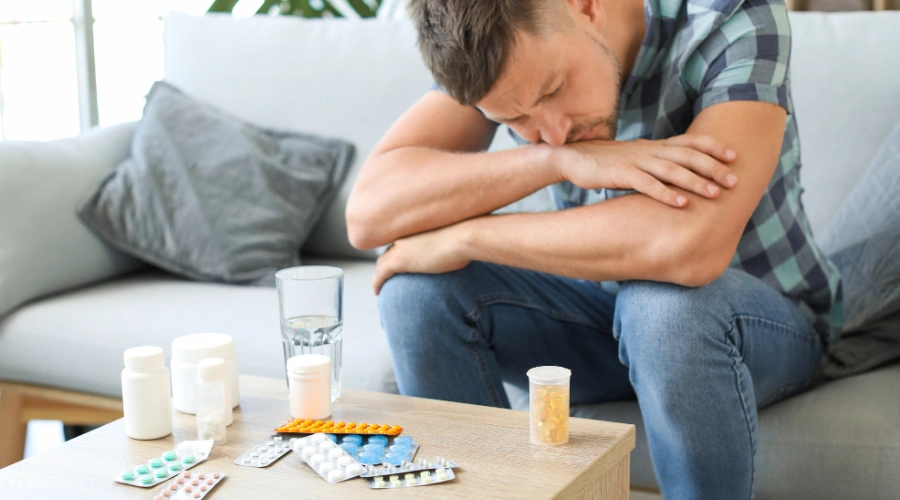
Loved ones and friends who can recognize the signs and symptoms of overdose quickly can save lives by getting medical help quickly. Overdose symptoms usually range from mild to dire depending on the sedation level, the person’s tolerance for Xanax, and whether they took other substances. Below are some of the signs to know:
Mild to Moderate Overdose Symptoms
The first stages of Xanax overdose can be subtle or appear as extreme sleepiness. They can include the following:
- Drowsiness
- Slurred speech
- Confusion
- Mental fog
- Impaired coordination
- Tripping, stumbling
- Blurred vision
- Slow reaction times
These can go from mild or moderate to an emergency quickly, especially if the person also took alcohol or opioids along with the Xanax.
Severe or Life-Threatening Symptoms
In higher doses, Xanax can cause respiratory depression, a critical health emergency. Watch for these symptoms:
- Slowed breathing
- Shallow breathing
- Loss of consciousness
- Inability to stay awake
- Low blood pressure
- Suicidal thoughts or ideation
- Seizures
- Coma
These signs mean you must call emergency services for immediate medical intervention.
When to Call 911 for Xanax Overdose (or Other Benzodiazepines Like It)

Do not hesitate; call 911 if the person has lost consciousness, has trouble breathing or has breathing problems, can’t be awakened, has blue fingers or lips, or is having a seizure. If you are unsure, it’s always best to err on the side of caution – call for help.
Immediate Steps to Take Before Help Arrives
While waiting for first responders, you must keep your loved one as safe as possible. The 911 dispatcher will likely instruct you to put your phone on speaker and follow these instructions:
- Keep the person awake, even if they complain of severe drowsiness
- Monitor breathing patterns
- Roll them onto their left side in the recovery position
- Stay with them
- Communicate with paramedics, describing what you believe they took
- Perform CPR if it becomes necessary
When the first responders arrive, they will take over. They will stabilize the person and take them to the hospital.
Benzodiazepine and Xanax Addiction by the Numbers
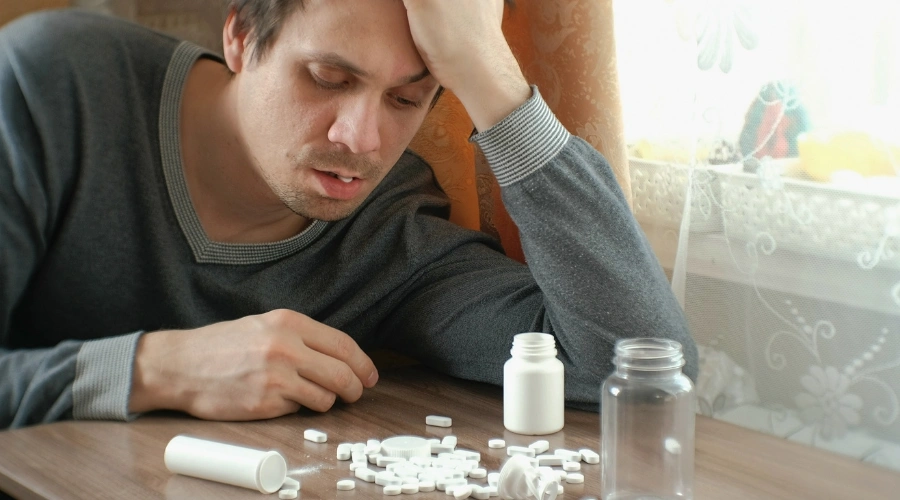
Statistics shared by the National Institute on Drug Abuse (NIDA) and the Centers for Disease Control (CDC) reveal how many Americans need Xanax addiction treatment.
- 4% of Americans over age 12, about 3.9 million, reported benzodiazepine misuse.
- 7% of adults, 4.9 million, had abused sedatives or tranquilizers
- 1% (14.3 million) had used any prescription drugs (not only benzodiazepine or Xanax)
- 12,499 fatal overdoses of benzos occurred in the same reporting year (2021)
- The CDC reported a 42.9% increase in benzodiazepine deaths, largely due to the use of other drugs, such as Xanax
While discussions of fentanyl and opioid overdoses dominate news headlines, Xanax overdose sometimes seems like an overlooked, but very real, threat.
Risk Factors That Increase Overdose Potential when Taking Xanax
Certain behaviors can increase the odds of a Xanax overdose. While all who misuse benzos are at risk, the following conditions make alprazolam overdoses even likelier:
- Taking both Xanax and other depressants, including sleep aids, opioid drugs, or alcohol
- Taking more than the amount of Xanax needed or prescribed
- Low tolerance for drugs, especially first-time Xanax use or after relapsing
- Respiratory conditions like asthma, COPD, or long COVID
- Mental health disorders, including depression, anxiety disorders, or other conditions, the person may be trying to self-medicate
- Liver disease
- Past drug or Xanax use
- Cultural or family influences on drug use
Understanding the risk factors of taking Xanax is key to the prevention of overdoses.
The Dangers of Mixing Xanax with Other Drugs
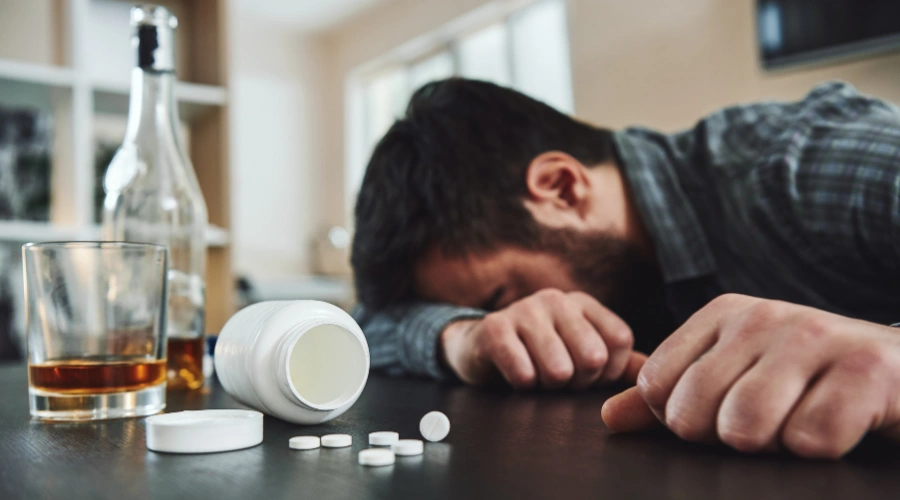
Taking Xanax with other drugs can impact heart rate, brain function, or a person’s breathing. Remember that Xanax works by depressing the central nervous system, so mixing other powerful drugs with a Xanax dose can have tragic consequences.
Many people don’t fully understand how substances can interact, making them misjudge how much Xanax they can take, especially when mixing it with other addictive substances.
Other Substances That Worsen the Overdose Risk
Here are some of the other substances that can contribute to a Xanax overdose:
- Opioids (these include oxycodone, fentanyl, heroin): The most dangerous combination, often resulting in respiratory depression or heart failure.
- Alcohol: One of the most common and deadly pairings with benzodiazepines due to its sedative effects.
- Other central nervous system depressants/benzodiazepines: Doubling up on benzos increases the likelihood of overdose, especially when taking it without medical supervision.
- Sleep aids: Medications like zolpidem (Ambien) or barbiturates can have a double depressant effect.
- Muscle relaxants and anti-psychotic medications: These can increase drowsiness, confusion, and sedative effects when mixed with Xanax.
Even common, otherwise safe, prescription medications can be dangerous when combined with Xanax if not carefully managed. This is why it’s important to have an honest discussion about all drug use, over-the-counter, legal, or otherwise, with your physician.
Medical Interventions for Xanax Overdose Treatment
When emergency physicians suspect Xanax overdose, prompt medical treatment is the key to survival. Emergency medical technicians would likely have tried oxygen therapy, inserted an IV, provided fluid, and monitored vital signs on the trip to the hospital.
At the emergency room, the person may receive a benzodiazepine reversal drug that blocks the effect of the Xanax. This oral concentrate is administered intravenously, but this medication is not appropriate for everyone due to seizure risks.
The person will remain closely monitored until their breathing, blood pressure, and mental status are no longer life-threatening. A nurse practitioner or RN may provide education on drug dependence and make a referral for professional detox and treatment.
Treatment Options for Xanax Addiction
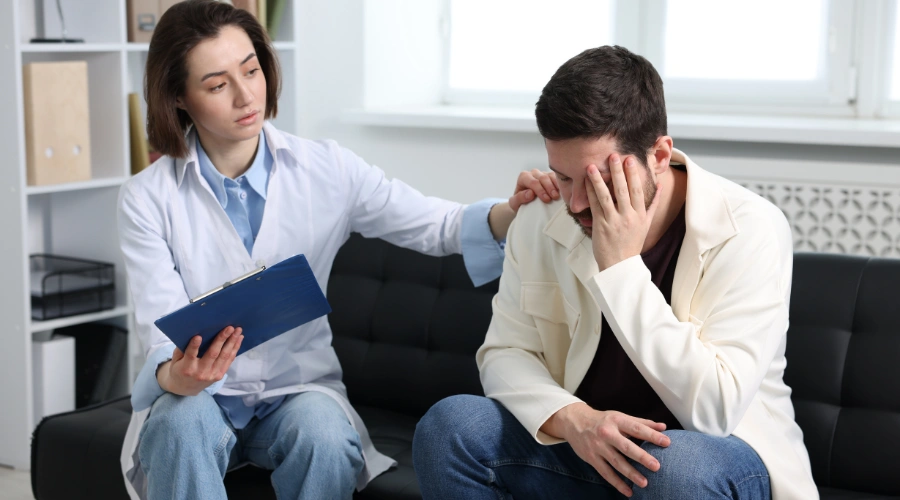
At South Shores Recovery, we understand that recovering from any drug abuse requires more than simply stopping substance abuse. Indeed, it takes a comprehensive treatment plan and full continuum of care that includes:
- Managing Xanax withdrawal symptoms in a medically supervised Xanax detox center
- Behavioral health services to make lifelong healthy changes
- Mental health support, including therapy and building life skills
- Treating dual diagnoses, such as post-traumatic stress disorder, anxiety/panic disorder, or depression
- Relapse prevention and aftercare planning
Each Changes client will receive a customized rehab program to meet their recovery goals. Our commitment to your addiction recovery will be clear from the moment you meet us.
Insurance Verification Services Before Starting Xanax Addiction Treatment
We encourage each client planning on filing insurance to cover addiction treatment costs to call our admissions department. We will serve as your advocate, helping you get the most covered benefits approved by your insurance plan.
Treating Xanax may require several addiction treatment services, such as detox and treating withdrawal symptoms, evidence-based therapies, and learning new coping skills. Our admission staff can offer you the most excellent chance of covering them all.
Working with the Medical Professionals at South Shores Recovery
Our clients work with a team of highly qualified mental health professionals who understand addiction medicine and mental healthcare standards. From the time you meet our intake specialist through ongoing therapy, we strive to meet all your individual needs.
Our integrated approach to addiction treatment ensures your physical and emotional wellness is at the forefront of your recovery journey.
Struggling with Xanax Abuse? Call Changes for Effective Treatment
If you or a loved one has had a Xanax overdose, then it’s past time to get help for your addiction. Every day you spend using substances is a day closer to another overdose, as your Xanax dependent body continues to push you to use ever-increasing amounts of the drug.
Our addiction treatment team can help you stop using Xanax and work on learning new, healthy coping techniques to replace the addiction.
Call our admissions specialists today to learn how Xanax may be a distant memory – sooner than you think.

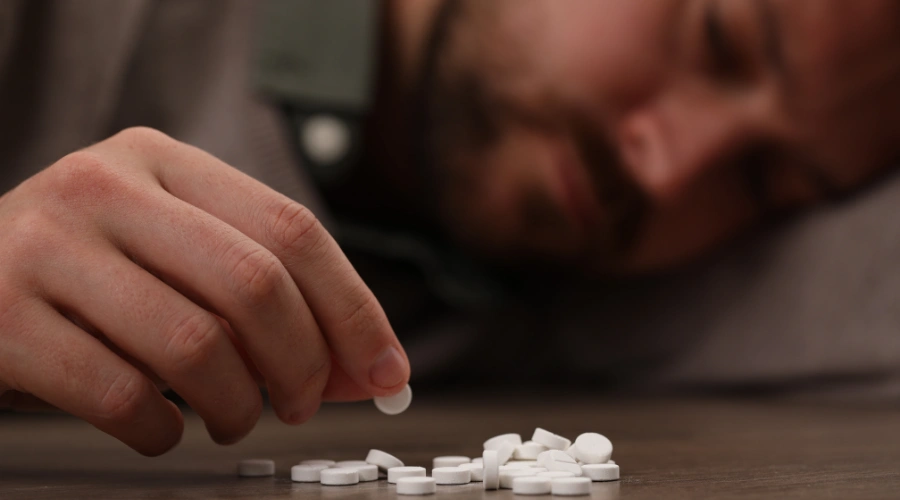
Recent Comments